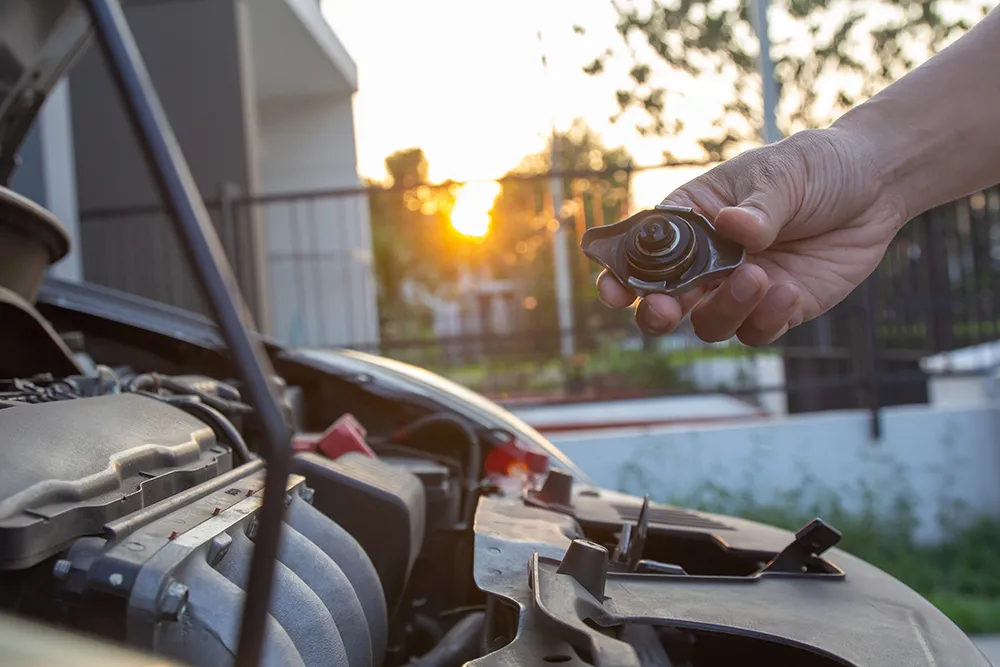If your vehicle’s radiator is showing signs of trouble, it’s essential to get it fixed immediately to avoid more severe issues. A radiator leak can cause your engine to overheat and even cause engine damage, which can be costly and time-consuming. The good news is that you can avoid most radiator issues with proper maintenance. However, if your radiator is beyond repair, you must replace it. We’ll review all the ins and outs of dealing with a radiator leak, including how to diagnose and fix the issue and when to replace your radiator.
First and foremost, knowing how to diagnose a radiator leak is essential. If your vehicle’s coolant level is low or if you notice the temperature gauge rising, these are telltale signs that your radiator is leaking. You may also see green fluid beneath your car or an unpleasant smell emanating from your engine, indicating a leaking radiator. If you experience any of these symptoms, check your radiator for cracks or other signs of damage. You can do this by visually inspecting the radiator or using a pressure tester to pinpoint the exact location of the leak.
If you do have a radiator leak, there are a few things you can do to fix the problem temporarily. One option is to use a radiator stop leak product, which can be added to your vehicle’s coolant to seal small leaks. However, while stop-leak products can be effective in the short term, they’re not a permanent solution and can potentially cause more damage. The best option for fixing a radiator leak is to replace the radiator entirely.
When replacing your radiator, have a professional mechanic handle the job. Replacing a radiator can be a complex and time-consuming process, and if not done correctly, can cause further damage to your vehicle. Typically, a radiator replacement involves draining the coolant, disconnecting the hoses and fans, removing the old radiator, and installing a new one. The process can vary depending on the make and model of your vehicle, and only a skilled mechanic with the proper tools and experience should handle the job.
Before replacing a radiator, consider the type of radiator you’ll need. There are two main types of radiators: aluminum and copper. Aluminum radiators offer better heat dissipation and are more efficient at cooling your engine, but they can be more expensive than copper radiators. On the other hand, copper radiators are known for their durability and can be more affordable, but they may not be as efficient as aluminum radiators. Your mechanic can help you determine the best radiator for your vehicle and budget.
Dealing with a radiator leak can be a stressful experience, but it’s essential to take care of the issue right away to avoid more severe problems. Knowing how to diagnose a radiator leak and when it’s time to replace it can keep your vehicle running smoothly and avoid costly repairs. Remember, trust a professional mechanic who can properly diagnose and fix the issue regarding radiator repair or replacement.

